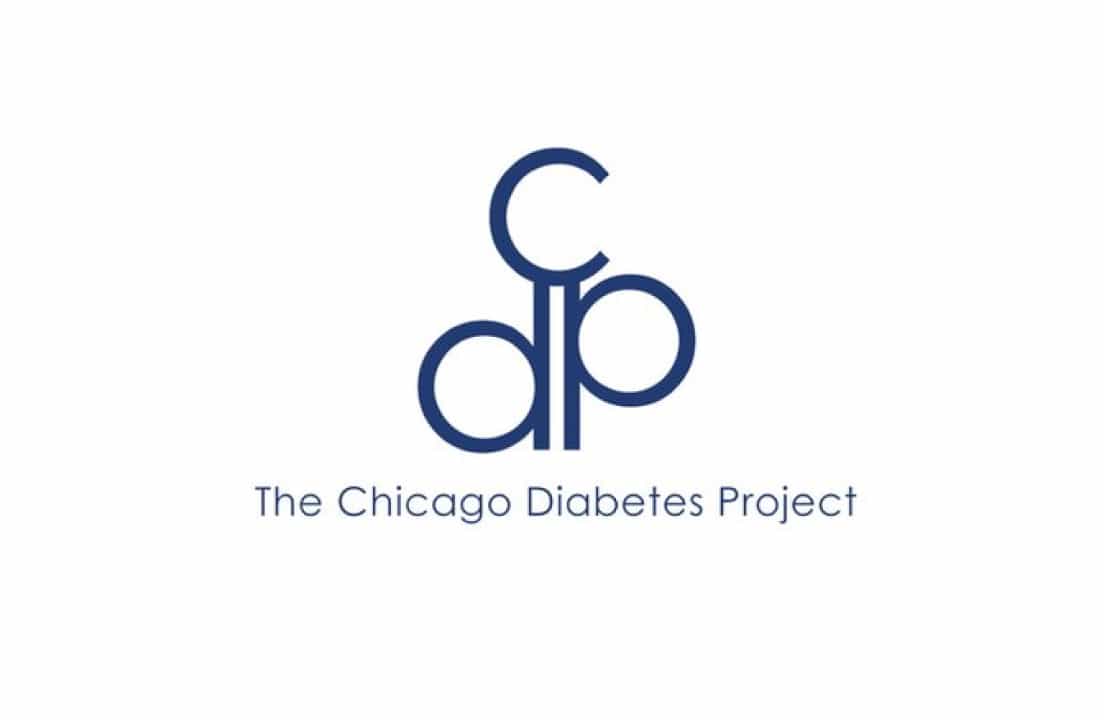T1D Guide
T1D Strong News
Personal Stories
Resources
T1D Misdiagnosis
T1D Early Detection
Research/Clinical Trials
Meet T1D Author and Health Coach, Mark Brezzell
Author Mark Brezzell shares his ‘Unexpected Journey’ with diabetes and how it inspired him to become a speaker and diabetes educator. After being misdiagnosed with type 2 diabetes, he now urges those newly diagnosed to ask questions, seek second opinions, and prioritize self-education.
.jpg)
Mark Brezzell’s book, A Matter of the Heart: My Unexpected Journey with Diabetes, addresses the diabetes crisis in the United States. He emphasizes the importance of education, awareness, regular screenings, health and fitness programs, and supportive networks to reduce disparities.
Brezzell said, “People with type 1 and type 2 face unique health challenges, especially those in the African American community.”

Brezzell discovered that with the right outlook, mindful living, and his “8 Key Principles,” you can take back control of your condition (whether it’s type 1 diabetes or type 2) and live a healthy life.
His Eight Laws of Health, or the New Start principle, are:
- N - Nutrition: Emphasizes the importance of healthy eating.
- E - Exercise: Highlights the benefits of physical activity.
- W - Water: Emphasizes the importance of maintaining adequate hydration.
- S - Sunshine: Points out the positive effects of sunlight exposure.
- T - Temperance: Suggests the importance of moderation in all things.
- A - Fresh Air: Promotes the advantages of clean air.
- R - Rest: Stresses the importance of sufficient rest and sleep.
- T - Trust in God: Encourages faith and reliance on a higher power.
A Call to Action: Mark’s Misdiagnosis
Despite having a brother with type 1 diabetes (T1D), Brezzell really didn’t expect he’d be at risk. His brother was in the military and was diagnosed in his early twenties. Brezzell was 31 and recently married when he began experiencing T1D symptoms: unexplained weight loss and a strong craving for sugary drinks.
“I ate like a horse, but I was very active,” Brezzell said. He started taking naps and had episodes of blurred vision—a strange glare when he awoke, but it wasn’t until he started having frequent urination that it keyed him into diabetes. “I bought a urine test at the drugstore, and I was floored. I was so caught by surprise. It shocked me. I was angry, and I went through the full emotional gamut.”
His doctors assumed that because of his age, it was type 2 diabetes (T2D). They put him on metformin and a little bit of Humalog, but his blood glucose levels remained high.
“It’s one thing to understand the physiology of it (diabetes), but when it’s applied to you, you look at it through a completely different lens,” he said.
Within a few months, his C-peptide levels exhibited some residual activity, leading the physicians to ultimately revise the diagnosis to type 2 diabetes.
The two conditions are very different, as type 1 is an autoimmune disorder and type 2 is a metabolic disorder.
Brezzell admitted that he has encountered a fair amount of misdiagnosis between type 1 and type 2, which he now tries to rectify.
Perfusionist to Patient
A year prior to his diagnosis, Brezzell worked as a clinical cardiovascular perfusionist. A perfusionist works as part of a surgical team to support patients during procedures that require artificial blood circulation or oxygenation, such as open heart surgery. During procedures, they monitor the cardiopulmonary bypass machines, which temporarily replace the heart and lungs.
Before Brezzell had diabetes, an anesthesiologist he worked with commented to him that they needed tighter protocols for dealing with diabetes patients undergoing surgery. It got Brezzell thinking about the lack of education in the diabetes world.
“There are a lot of gaps out there; primary care doctors don’t really refer their patients with peripheral vascular disease (PVD) to either vascular surgery or interventional cardiology.” The latter uses minimally invasive, catheter-based procedures to diagnose and treat heart and blood vessel conditions.
“A lot of times they’ll misdiagnose—or try to treat the conditions with lifestyle changes, which is effective, of course, if they do it, but sometimes you get to a point where you need intervention.”
Brezzell said that some patients wait too long and reach a point where they experience tissue loss.
“My focus now is to let people know—if there’s something not right, get it checked out.”
A Matter of the Heart
“One of the reason I wrote the book (A Matter of the Heart, My Unexpected Journey with Diabetes) was that the company I work for now develops peripheral vascular prevention equipment—tools (stents, balloons) and devices used to diagnose, treat and manage conditions affecting blood flow in the limbs such as peripheral artery disease (PAD), and peripheral vascular disease.”

PVD, a condition commonly associated with all types of diabetes, is a circulatory problem where narrowed or blocked blood vessels reduce blood flow to the limbs and other body parts. PVD can lead to pain, cramping, tissue damage and in rare cases, amputation.
“Amputation is a big problem, particularly in the African American population, those who are not on top of the peripheral vascular risks,” said Brezzell. “I tell people all the time, amputation is not your first option. There are so many different interventions out there. If you have blood flow, you have a chance.”
Brezzell wrote the book because he felt two things were missing in diabetes education:
- The emphasis on limb preservation
- The psychological component of diabetes.
“I saw tons of diabetic books, but everything was focused on therapy or diet. Very few books bridged the gap between the psychological component of how your condition impacts everyone around you—caregivers, family and friends.”
The Body Mind Correlation
Brezzell said that anytime you deal with a chronic condition that requires you to be on top of your game every single day, it carries a great deal of stress.
Health Coach
Brezzell now has the inside scoop, working for a medical device company where he can see the tech advancements in real-time. He has worked with medical devices, served as a clinician, and is a patient—all of which have given him the experience to speak on diabetes care management.
The foremost advice Brezzell gives to people in his travels is to “Listen to your intuition. You know yourself better than anyone. If something feels funny, at least get a second opinion.”
His website MDB LiveConnext.com is dedicated to guiding individuals, particularly those living with diabetes and cardiac conditions, through education, coaching, and motivational storytelling.

The Silent Killer
“If you have elevated sugars, get checked out,” Brezzell warns that with no symptoms, type 2 diabetes is the silent killer.
“The body adjusts to the higher sugar levels. This is a condition that has so many complications, it’s not talked about very much, it’s just amazing to me—they speak of hypertension, but diabetes is such a complex disease to treat, it’s scary.”
Brezzell also tries to explain the difference between types 1 and 2 to audiences. “Some people don’t even know when to take their insulin, and they get confused as to what the difference is between type 1 and 2. I try to explain the different tests a doctor may order and explain what they’re looking for."
T1D Scout now has a DNA Test Kit that you can order directly to your home. Individuals can now join the waitlist to secure their spot in the world’s first fully remote screening program.
Advice to Someone Newly Diagnosed
Brezzell advises people to educate themselves on their condition. “You can take better care once you have an understanding of what you’re dealing with. Understand the medication that you’re on and why you’re taking it. Understand what the risks are with the medication. Gain a better understanding of diabetes itself and what is going on with me. Start with the ABCs.”
The Wholistic Experience
Diabetes is not just about a pill or insulin; it’s a holistic thing,” explained Brezzell. “Be aware of carb-loaded meals, you have to learn to measure that. One of the biggest transitions is determining when I can eat. Exercise is key and will help with all the components in your system. With T2D, exercise helps with insulin resistance.”
Sleep is another factor that Brezzell discusses in his book, specifically one of the “8 Key Health Principles.”

“Your body prepares itself when you sleep. You need enough rest, fresh air, and sunshine,” Brezzell said. “If your body is in optimal shape, it can better offset and handle the stressors associated with a condition like diabetes. The poorer your health, the more complications arise. Your body is much more resilient than you give it credit for.
Lastly, Community is Key
“Reach out to other diabetics, and ask how do you deal with this,” said Brezzell. “Don’t deal with it in silence. There’s a great online community, and just about everybody knows somebody with diabetes—try to connect. It’s helped me to know I’m not alone with this.”
Click here to order Mark Brezzell’s A Matter of the Heart: My Unexpected Journey with Diabetes.
For more information on his motivational speaking opportunities, please visit his website.


.webp)





.webp)

.jpg)

.jpg)
.jpg)

.jpg)
.jpeg)
.jpg)
.jpg)

.jpg)
.jpg)
.jpg)
.jpg)

.jpg)

.jpg)


.jpg)
.jpg)



.jpg)

.jpg)
.jpg)


.jpg)
.jpg)

.jpg)
.jpg)
.jpg)
.jpg)
.jpg)

.jpg)
.jpg)
.jpg)
.jpg)
.jpg)
.jpg)
.jpg)
.jpg)
.jpg)

.jpg)
.jpg)
.jpg)

.jpg)
.jpg)


.jpg)
.jpg)
.jpg)
.jpg)
.jpg)














.jpg)


.jpg)













.webp)





%20(1).png)











.webp)